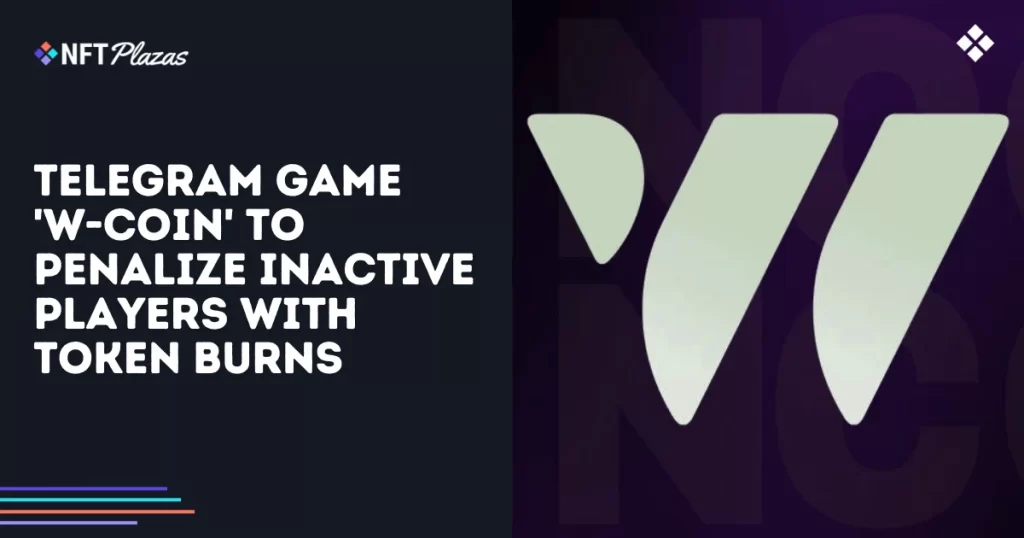Telegram-based click-to-earn game W-Coin has introduced a controversial policy that will punish players who are inactive for three days by burning 5% of their token supply every day until they log back in.
The move was announced ahead of the launch and airdrop of the gaming token on the Open Network (TON) in December, sparking debate among players.
While developers believe the policy is intended to foster an active player base, critics question its fairness.

 Source: W-Coin
Source: W-CoinDetails of inactivity rules
W-Coin’s new inactivity rules apply to all players who fail to log in for three consecutive days, causing their token holdings to be reduced by 5% each day until they return. According to W-Coin’s announcement, this measure is designed to ensure that only active participants can influence the in-game economy, while also potentially increasing the value of the token ahead of its launch in December.
However, this policy is unusually strict compared to similar games. For example, X Empire, another click-to-earn game, allows players a 30-day window of inactivity before any tokens are affected. W-Coin’s three-day limit has caused concern among players, especially casual users who may not log in every day.
Premium players who subscribe to the W-Galaxy tier are exempt from inactivity consumption. W-Galaxy subscriptions are available in two tiers: Lite and Full, priced at 149 stars and 249 stars respectively. Stars, the Telegram-based virtual currency used in the game, are available in bundles starting at £5.94 for 250 Stars, effectively making inactivity immunity a paid perk.

 Source: W-Coin
Source: W-CoinUpcoming Tokens and Airdrops
The policy comes as W-Coin prepares to launch its token on TON in December, followed by a massive airdrop that will allocate 70% of the total token supply to eligible players. To determine allocation, W-Coin took a “snapshot” in October, a process that records player data and progress on-chain. The final snapshot is expected to be released closer to the release date.
This airdrop is a major milestone for the game, with the developers stressing the importance of rewarding active and engaged players. However, strict inactivity penalties elicited mixed reactions.
Some players recognize the potential for increased token value due to reduced supply, while others feel the policy unfairly penalizes a casual gaming genre that is often characterized by low commitment requirements.

